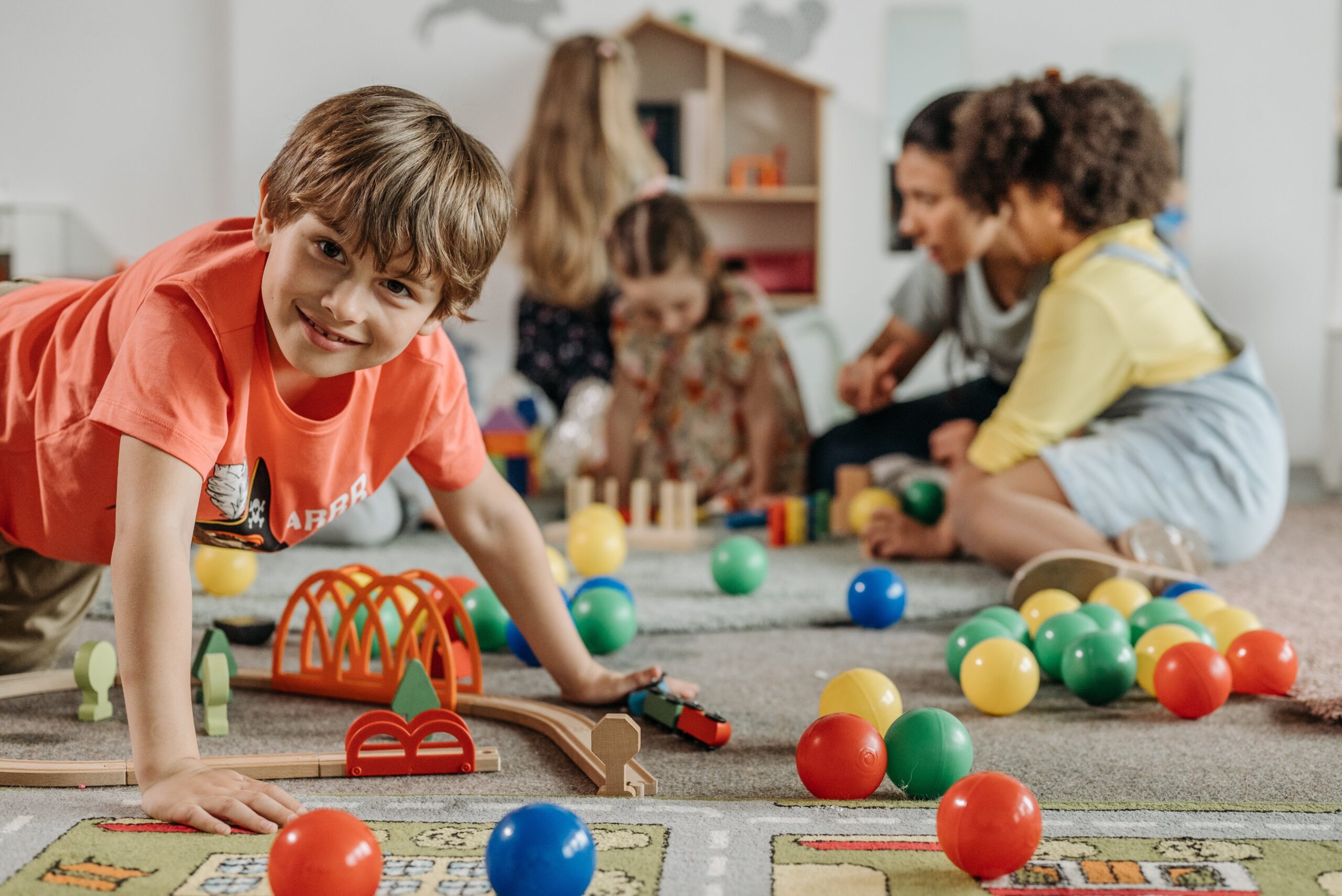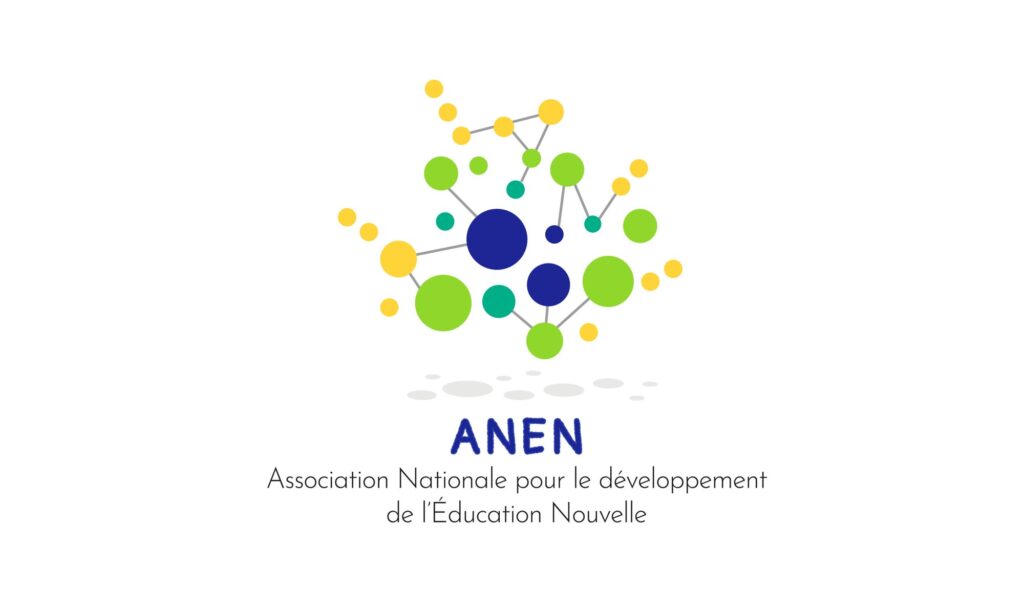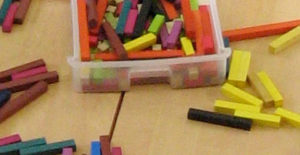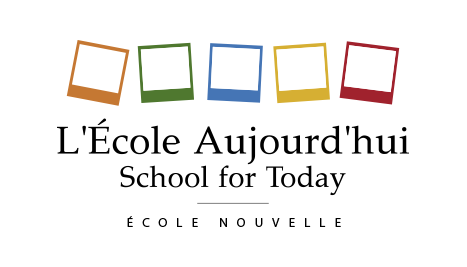
School pedagogy
Être, agir, apprendre…* Vivre à l’école
Inspiration for the educator – A learning environment for children
L’École Aujourd’hui – School for Today is a private, non-denominational, coeducational and state supported primary school, founded by teachers in 1975. It is situated in the 14th district of Paris and follows the official syllabus of the French Ministry of Education.
We enroll 140 students from pre-K to 5th grade.
The school uses inquiry-based learning, inspired by the learning tools and teaching methods of the progressive education and institutional pedagogy movements while conforming to the official French curriculum.
L’Ecole Aujourd’hui-School for Today is a member of l’Association Nationale pour le développement de l’Éducation Nouvelle (A.N.E.N).
* living, doing, learning…

Since its founding in 1975, the school has been managed collectively by the faculty and staff: in-service training, recruitment and budget.
- To provide a small close-knit community: children, parents, staff.
- To use activity-based programs and manipulative materials allowing children to build a strong foundation in all disciplines.
- To promote project-based learning.
- To develop social awareness and responsibility.
- To encourage creativity and initiative.
- To establish positive relationships between children and adults.
- To teach English as a foreign language from nursery through 5th grade.
- To cultivate an interest in the outside world.
- To create a partnership with the parents’ association. (APE)
- To collaborate with other schools affiliated to the A.N.E.N. (Association pour le développement de l’Éducation nouvelle)
- The school rents 450 m2 in the Montparnasse area of central Paris. The buildings are composed of different sized classrooms and an activity room large enough for school assemblies. The classrooms open onto a small central playground.
- 140 students in seven classes: Nursery and pre-K (PS/MS), Kindergarten (GS), 1st-5th grades (CP, CE1, CE2, CM1 and CM2).
- 12 adults: eight homeroom teachers, two native speaking English teachers, one Early Years Specialist and one special educational needs teacher. All our staff members hold the necessary diplomas.
Learning environment:
- The classrooms, workshop, kitchen, activity room and courtyard are open to all within the school guidelines.
- Children are able to move freely within the school buildings, older and younger children mix freely. The children get to know the adults in the school where the notion of mutual respect is fostered.
- The school day is organized around alternate periods of individual and collective learning. Classes often collaborate allowing cooperative learning structures.
Social environment:
- Within the school: The school opens its doors at 8:30am. Parents and carers are welome in the morning until 8:55am and again at pick-up at 4:00pm.
- In the classroom: In order to promote collective responsibility within the class, different tools are used: weekly class council meetings, jobs and responsibilites, show and tell, class delegates.
- During lunch: Children eat in their classrooms. They can choose where they sit and they clean up afterwards encouraging responsibility and teamwork.
- Interclass activities : Recess, choir, PE, cooperative learning projects…Children of all ages meet up creating occasions for collaboration and communication.
- Alternate periods of class, group and individual work.
- Diverse methods and materials inspired by the Progessive Education Movement.
- Cooperation, collaboration and tutoring between students.
- Time scheduled for personal creativity.
- Intra-school correspondance.
- Participation of students in decision making through school and class councils.
We venture out of school…
- To practice road safety rules in the streets and on public transportation.
- To go to neighborhood parks.
- To go to the swimming pool.
- To shop for cooking projects.
- To go on field trips to museums, exhibitions, historical and geographical sites, work places…
- To go on residential field trips (every other year).
- To travel to the U.S.A. for three weeks (5th grade/CM2).
We welcome to our school…
- Children and adults from other schools.
- Children and adults involved in correspondence projects (France and abroad).
- Professionals: artists, scientists, writers, musicians…
- Student-teachers, French and other nationalities.
The parent-teacher partnership consists of:
- Individual meetings
- Class meetings
- Parent-teacher assemblies
- Meetings with teacher and class representatives
- Parents’ association (APE) meetings
- Publication and editing of the school newsletter, «Arc en Ciel»
- Supervision during class outings
- Parent-led workshops
- Attendance of a member of the parents’ association at the Annual General Meeting of the school
- Parent-teacher committees for special projects
Always in the process of reflection and discovery, the school strives to improve through developing projects that involve the faculty and outside professionals.
Past student centered projects:
- improvements in special needs provision
- academic progress evaluation
Past teacher centered projects:
- group dynamics
- choir
Find out more about our school pedagogy
“Quand apprendre, c’est être l’acteur conscient de son apprentissage”
Cuisenaire rods and words in color are among the different pedagogical materials used in class. They illustrate the importance given to « the subordination of teaching to learning »* and to activity based programs.
This pedagogical framework was developed by Dr Caleb Gattegno (1911-1988).
Cuisenaire Rods

Simple problem solving stimulates children to observe, manipulate, explore, hypothesize, build and conclude through trial and error.
Important mathematical notions are compiled so as to create the foundation for new learning.
Used by the entire student body (Nursery-5thgrade) at Ecole Aujourd’hui, Cuisenaire rods contribute to the development of students’ mathematical thinking through the exploration of clear and tangible problems.
Words in Color

The underlying theory to the creation of this material is that learning occurs when acts of awareness are self-generated as opposed to learning through passive impregnation or imitation. The purpose of this material is to emphasize the exploration of language and an understanding of its functions.
The relationship between the written and spoken word is rendered tangible through the use of color and allows the student to focus on the phonemes. Each color corresponds to a particular phoneme and its different graphemes.
Each student progresses individually at his/her own pace. The student enriches his/her reading/writing by the physical act of pointing to the different colors and graphemes; thus integrating the particularities of spelling and conjugation so essential to the French language.
- to use his/her mental capacities and previously acquired knowledge.
- to be aware of the work that needs to be undertaken.
- to be in a position of creativity and responsibility.
- to construct his/her own criteria and learning strategies.
- to manipulate language in a quick and simple manner.
- to explore the relationship between the oral and written language
- to ask questions regarding language
- to be constantly encouraged by relevant activities and realistic challenges.
English as a foreign language has been taught at l’école Aujourd’hui since its opening in 1975. Learning another language exposes the student to an alternative way of thinking. It encourages children to be globally aware.
Early and continual foreign language learning provide children with a useful tool for later in life. The presence of bilingual classmates (roughly 25% English speaking and 20% other languages ) motivates children to find out more about different languages.
English is taught by two native speaking members of the faculty. It is integrated within the curriculum of the school, as required by the French National Education System. English is considered a means of communicating and sharing ideas and experiences. It is used naturally and as much as possible in every day situations. The English classroom is centrally located and is equipped with a library and an interactive Smart Board.
Pre-school, Kindergarten and 1st grade – class of 10-12, lessons of 30 minutes, 3 or 4 times per week
Children discover English through TPR (Total Physical Response) and the use of objects and stories adapted to their age.
Language is constantly recycled and reinforced through a variety of meaningful activities : songs, poems, games, books, dances, videos, cooking, artwork….
The homeroom teacher and the English teacher work together in order to integrate English in the class syllabus with common themes such as the body, the town, transport, toys, food…
As the English teacher participates in the life of the class (Physical Education, choir, lunchtime supervision) English can be used in authentic situations.
English speaking students take part in the English classes with their classmates. They are encouraged to participate at an appropriate level. The use of children’s literature provides a framework for vocabulary enrichment.
2nd to 5th grade – class of 10-12, lessons of 45 minutes, 3 or 4 times per week
In 2nd, 3rd and 4th grade teaching is based on the well known course « Kid’s Box » (Cambridge University Press). This course includes a course book, an activity book and interactive audio and video recordings. Children learn key language items, useful phrases and vocabulary and start to read and write in English.
The children of 5th grade take part in a three week residential field trip to the United States. The preparation for this project allows for a reinforcement of vocabulary and skills previously taught within the themes of everyday life – school, family, home, food… Some aspects of American history, day to day life and traditions are also covered.
The English as a Foreign Language curriculum taught at l’École Aujourd’hui is in conformity with the recommendations of the French Ministry of Education, aiming for the skill level of A1 of the Common European Framework of Reference for Languages (CEFR).
From 2nd to 5th grades English speaking children begin a personalized syllabus of reading and writing skills adapted to their level. They work alongside the other members of their class and may also participate in special projects such as cooking, theatre and art. Each student has a personal weekly work assignement that includes reading, writing, grammar and spelling tasks. Learning tools used include: « Basic Skills English workbooks» (Collins), « Junior English » (Ginn) and a variety of reading materials.
An E.C.A. (English Classroom Assistant) is usually available to help the English speaking children once a week.
The teaching of the arts at Ecole aujourd’hui serves several objectives. Pupils can:
- develop a wide range of art and design techniques.
- learn about artists past and present.
- visit places of artistic interest.
- expand their own personal culture.
Visual art activities take place regulary within the class and occasionally with visiting artists or within a workshop session in a museum.
Music education is taught through weekly choir rehearsals.
Art activities are linked to the curriculum when possible – history, geography, literacy.
Some recent projects :
- Creating animated films.
- Drama workshops led by a parent.
- Light painting
- Land art
- Puppet making.
In all classes many interdisciplinary and interclass projects include art, drama and musical elements.
Physical education activities are crucial to the maturity of children and are an essential part of their education. The athletic activities offered at Ecole Aujourd’hui contribute to the devolopment of motor skills, self expression and setting personaml goals.
Ecole Aujourd’hui uses of the athletic facilities in the neighborhood (Huygens gymnasium, the Stanislas school pool) and our all purpose room (le préau). Track and field activities as well as team sports also take place in the Jardin Atlantique.
Field trips and residential class trips are an integral part of the school’s curriculum. These trips are incorporated into each class syllabus. They are also offer excellent opportunities for approaching global awareness.
Ecole Aujourd’hui takes full advantage of the many cultural activities Paris has to offer.
- The arts: Musée en herbe, Musée Bourdelle, Forum des images, projet « Ecole et cinéma », Orsay, Beaubourg, Musée du Quai Branly…
- History : Musée de Cluny, Musée Carnavalet, Musée de la Tapisserie de Bayeux…
- Science: Muséum d’Histoire Naturelle, Cité des Sciences, Palais de la Découverte…
Every other year the students in the pre-K class through 4th grade (MS to CM1), go on a residential field trip. Some previous trips:
- Nature and Music in the Drôme
- Ecology in Picardy
- The Middle Ages or Prehistory in the Périgord
- Nature study in the mountains of Rhone Alpes
- Marine life in Brittany
The 5th grade class travels to the US every year. The children live with an American host family for three weeks thus consolidating the years of instruction of English as a foreign language as well as discovering and learning about another culture and environment.
